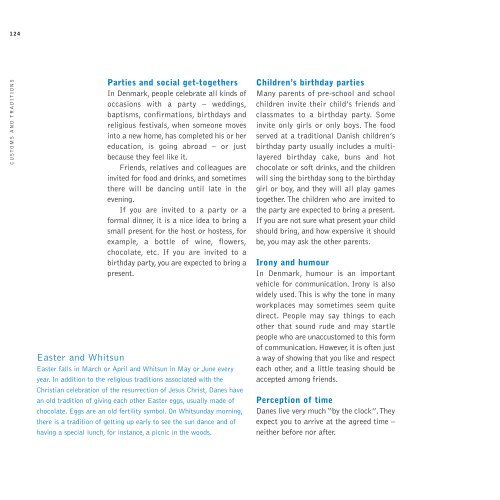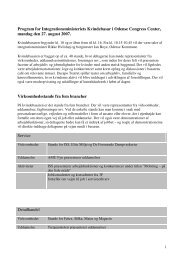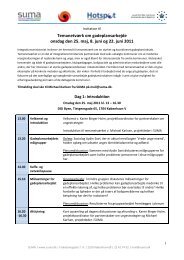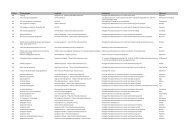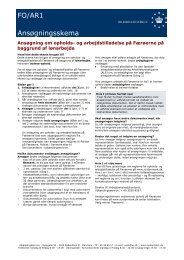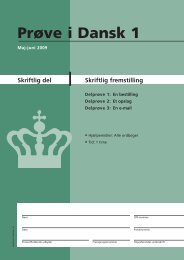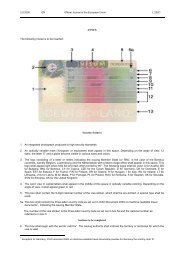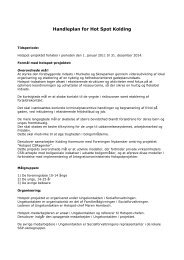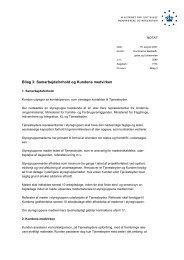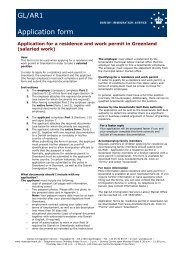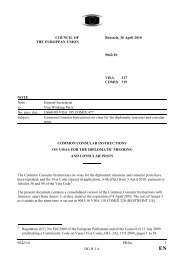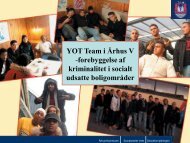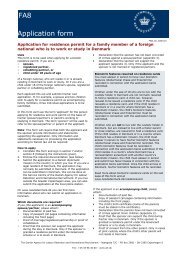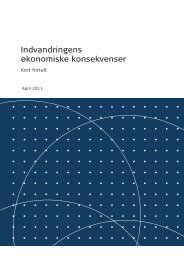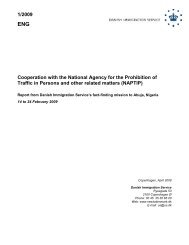medborger_i_danmark_engelsk.pdf - Ny i Danmark
medborger_i_danmark_engelsk.pdf - Ny i Danmark
medborger_i_danmark_engelsk.pdf - Ny i Danmark
- No tags were found...
Create successful ePaper yourself
Turn your PDF publications into a flip-book with our unique Google optimized e-Paper software.
124CUSTOMS AND TRADITIONSParties and social get-togethersIn Denmark, people celebrate all kinds ofoccasions with a party – weddings,baptisms, confirmations, birthdays andreligious festivals, when someone movesinto a new home, has completed his or hereducation, is going abroad – or justbecause they feel like it.Friends, relatives and colleagues areinvited for food and drinks, and sometimesthere will be dancing until late in theevening.If you are invited to a party or aformal dinner, it is a nice idea to bring asmall present for the host or hostess, forexample, a bottle of wine, flowers,chocolate, etc. If you are invited to abirthday party, you are expected to bring apresent.Easter and WhitsunEaster falls in March or April and Whitsun in May or June everyyear. In addition to the religious traditions associated with theChristian celebration of the resurrection of Jesus Christ, Danes havean old tradition of giving each other Easter eggs, usually made ofchocolate. Eggs are an old fertility symbol. On Whitsunday morning,there is a tradition of getting up early to see the sun dance and ofhaving a special lunch, for instance, a picnic in the woods.Children’s birthday partiesMany parents of pre-school and schoolchildren invite their child’s friends andclassmates to a birthday party. Someinvite only girls or only boys. The foodserved at a traditional Danish children’sbirthday party usually includes a multilayeredbirthday cake, buns and hotchocolate or soft drinks, and the childrenwill sing the birthday song to the birthdaygirl or boy, and they will all play gamestogether. The children who are invited tothe party are expected to bring a present.If you are not sure what present your childshould bring, and how expensive it shouldbe, you may ask the other parents.Irony and humourIn Denmark, humour is an importantvehicle for communication. Irony is alsowidely used. This is why the tone in manyworkplaces may sometimes seem quitedirect. People may say things to eachother that sound rude and may startlepeople who are unaccustomed to this formof communication. However, it is often justa way of showing that you like and respecteach other, and a little teasing should beaccepted among friends.Perception of timeDanes live very much “by the clock”.Theyexpect you to arrive at the agreed time –neither before nor after.


